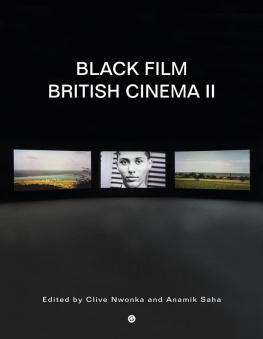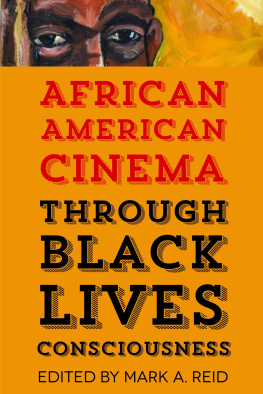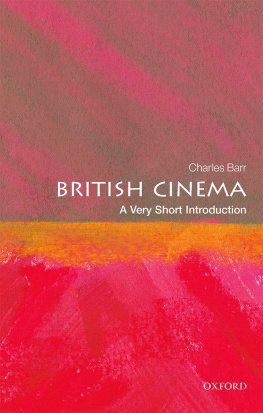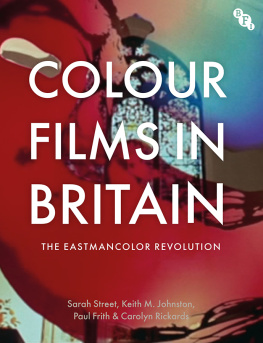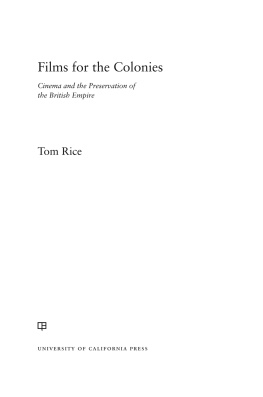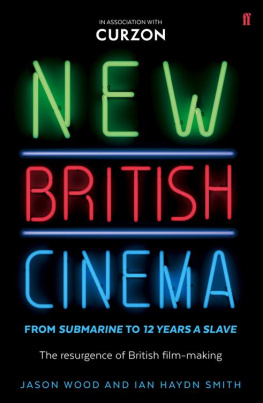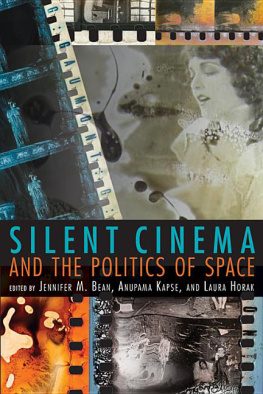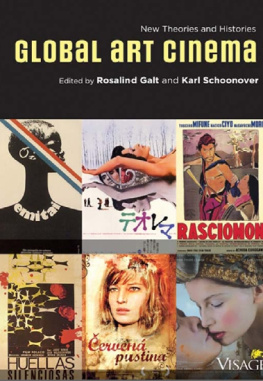Guide
Black Film British Cinema II
Black Film British Cinema II
Edited by
Clive Nwonka and Anamik Saha

Copyright 2021 Goldsmiths Press
First published in 2021 by Goldsmiths Press
Goldsmiths, University of London, New Cross
London SE14 6NW
Printed and bound by Versa
Distribution by the MIT Press
Cambridge, Massachusetts, and London, England
Copyright 2021 Clive Nwonka and Anamik Saha
The right of the individual contributors to be identified as the authors of this work have been asserted by them in accordance with sections 77 and 78 in the Copyright, Designs and Patents Act 1988.
Every effort has been made to trace copyright holders and to obtain their permission for the use of copyright material. The publisher apologises for any errors or omissions and would be grateful if notified of any corrections that should be incorporated in future reprints or editions of this book.
All Rights Reserved. No part of this publication may be reproduced, distributed or transmitted in any form or by any means whatsoever without prior written permission of the publisher, except in the case of brief quotations in critical articles and review and certain non-commercial uses permitted by copyright law.
A CIP record for this book is available from the British Library
ISBN (pbk) 9781912685639
ISBN (ebk) 9781912685653
www.gold.ac.uk/goldsmiths-press

d_r0
Contents
Erica Carter
Clive James Nwonka and Anamik Saha
Sarita Malik
Kara Keeling
Maryam Jameela
Richard T. Rodrguez
Richard Martin, Clive James Nwonka, Ozlem Koskal, and Ashley Clark
Rabz Lansiquot
So Mayer
James Harvey
Alessandra Raengo
Shelley Cobb and Natalie Wreyford
Tess S. Skadegrd Thorsen
Melanie Hoyes
Bidisha
Bidisha is a broadcaster, writer, and filmmaker. She specialises in human rights, social justice, gender, and the arts and offers political analysis, arts critique, and cultural diplomacy, tying these interests together. She writes for The Guardian and The Observer (where she is currently an arts critic) and for BBC TV and radio, Channel 4 News, and Sky News. Her fifth book, Asylum and Exile: Hidden Voices of London (Seagull Books, 2015), is based on her outreach work in UK refugee charities and detention centres. Her first film, An Impossible Poison (2017), has been highly critically acclaimed and selected for numerous international film festivals.
Erica Carter is Professor of German and Film at Kings College London, and Chair of the UK German Screen Studies Network. She began her academic career at the University of Birmingham, working across German and Cultural Studies, the latter at the Centre for Contemporary Cultural Studies. She took time out of the academy in the mid-1980s to co-found, with Chris Turner, the translation cooperative Material Word. Following two subsequent years as Director of Talks at the Institute for Contemporary Arts, London, Erica returned to academic life in 1989, with posts at the University of Southampton (198995), the University of Warwick (19952011), and Kings College London (2011present).
Ashley Clark is Senior Repertory and Specialty Film Programmer at Brooklyn Academy of Music (BAM). He has curated series at MoMA, New York, BFI Southbank, London, and BAMcinmatek. Ashley writes about film and culture for The Guardian, VICE, Film Comment, and Sight & Sound, among others, and he is a regular guest critic on BBC TVs Film show. His first book is Facing Blackness: Media and Minstrelsy in Spike Lees Bamboozled (The Critical Press, 2015).
Shelley Cobb is Associate Professor of Film at the University of Southampton and was Principal Investigator of the research project, Calling the Shots: Women and Contemporary Film Culture in the UK. She is the author of Adaptation, Authorship and Cotemporary Women Filmmakers (Palgrave, 2015) and co-editor of First Comes Love: Power Couples, Celebrity Kinship and Cultural Politics (Bloomsbury, 2015). Her most recent publications are on gender, diversity, and data in the film industry and the use of oral histories for contemporary cinema studies. Currently she is writing about the role of celebrities in media discourses about equality and diversity.
James Harvey is Lecturer in Film Studies at the University of Sussex. His research focuses on the politics of contemporary art cinema, artists film, and documentary. He is the author of Jacques Ranciere and the Politics of Art Cinema (Edinburgh University Press, 2018) and the editor of Nationalism in Contemporary Western European Cinema (Palgrave Macmillan, 2018). He is currently writing the first monograph devoted to the career of British-Ghanaian artist-filmmaker, John Akomfrah.
Melanie Hoyes is Industry Inclusion Executive at the British Film Institute, working on a project to acquire diversity data about gender and ethnicity for the BFI Filmography, telling stories about UK film history using data from the archive. She continues to use data and research in order to monitor and inform improved policy and practice at the BFI and the UK film industry. She completed a BA in Film and Literature at the University of Warwick and an MA in the History of Film and Visual Media at Birkbeck College, University of London. Before joining the BFI she taught undergraduates in Film, Media, and Cultural Studies at the University of Sussex, as well as working in Library Services at UCL.
Maryam Jameela researches film and trauma in relation to Islamophobia. Her work focuses on researching across disciplines in order to sharpen tools of anti-racist resistance. She completed her PhD at University of Sheffield.
Kara Keeling is Associate Professor of Cinema and Media Studies at The University of Chicago. Keeling is author of Queer Times, Black Futures (New York University Press, 2019) and The Witchs Flight: The Cinematic, the Black Femme, and the Image of Common Sense (Duke University Press, 2007) and co-editor (with Josh Kun) of Sound Clash: Listening to American Studies (Johns Hopkins University Press, 2012), and (with Colin MacCabe and Cornel West) a selection of writings by the late James A. Snead entitled European Pedigrees/African Contagions: Racist Traces and Other Writing (Palgrave Macmillan, 2003).
Ozlem Koksal is Senior lecturer at the University of Westminster School of Media Arts and Design. Her research focuses on representations of the past, as well as the notions of memory, loss, and displacement in visual culture. She is the author of Aesthetics of Displacement: Turkey and its Minorities on Screen (Bloomsbury, 2016). Her other publications include Past Not-So-Perfect: Ararat and its Reception in Turkey in Cinema Journal (54.1, 2014) and From Wim Wenders Lisbon to Fatih Akins Istanbul in Cool Istanbul: Urban Enclosures and Resistances (Transcript Verlag, 2015).
Rabz Lansiquot is a filmmaker, writer, curator, and DJ. She was a leading member of sorryyoufeeluncomfortable (SYFU) from 201418, and currently works with Imani Robinson as the curatorial and artistic collective Languid Hands, who are the Cubitt Curatorial Fellows for 202021. Rabz was Curator In Residence at LUX Moving Image in 2019, developing a programme around Black liberatory cinema

